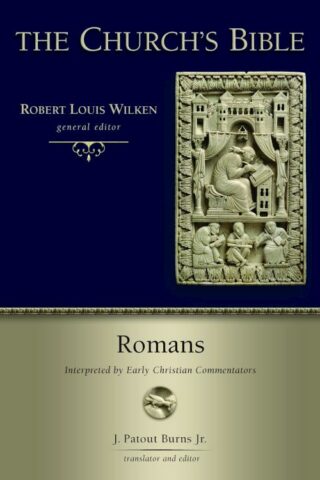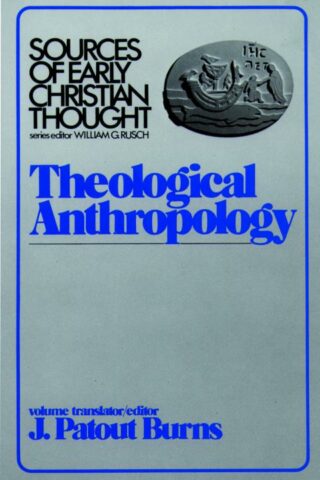J. Patout Burns
Showing all 2 results
-
Romans : Interpreted By Early Christian Commentators
$39.99Add to cartThe Church’s Bible series serves to bring the rich classical tradition of biblical interpretation to life. Compiled, translated, and edited by leading scholars, these volumes draw extensively from early and medieval commentators, illuminating Holy Scripture as it was understood during the first millennium of Christian history. Designed for clergy, Bible teachers, men and women in religious communities, and all serious students of Scripture, The Church’s Bible will lead contemporary readers into the inexhaustible spiritual and theological world of the early church and hence of the Bible itself.
This Church’s Bible volume brings together select lengthy excerpts from early Christian writings on Romans, Paul’s most comprehensive statement of Christian teaching. J. Patout Burns Jr. has judiciously chosen extended passages from such church fathers as Origen, Rufinus, Pelagius, Chrysostom, Ambrosiaster, Augustine, and Theodoret, enabling readers today to benefit from the church’s rich treasure trove of commentary on Paul’s Letter to the Romans. Covering the first five hundred years of Christian history, this volume incorporates new translations made from the best texts currently available.
Both Burns’s pastoral sensitivity and his extensive study of patristics shine through his selection of ancient passages, which run the full gamut of perspectives on Romans. Each passage is relevant and applicable to our current understanding and living of the Christian life, not just historically valuable. This volume — and the entire Church’s Bible series — will be welcomed by preachers, teachers, students, and general readers alike.
-
Theological Anthropology
$26.00Add to cartThis volume brings together a number of various perspectives on theological anthropology which found relatively wide acceptance in early Christianity. Writings from Irenaeus of Lyon, Gregory of Nyssa, Pelagius, the Canons of the Council of Carthage, Augustine, and the Synod of Orange comprise the sources pulled from as the reader is taken all the way into the sixth century of selected Christian anthropological thought.


